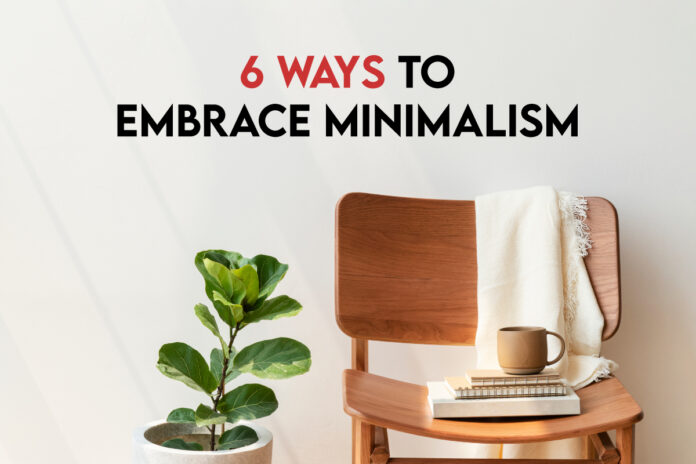“The reason the message of minimalism is so powerful is because we’re bingeing on all the wrong things, and we’re dying of hunger for the things that really matter.”
–Erwin McManus, Less is Now
We live in a world that places a false value on having more things and not having the time to use them. The never-ending chase of greater and better is a never-ending circle. There will always be a faster and finer automobile, a bigger yacht, a bigger house, or a more luxurious private aircraft to buy.
Did you know there is a website where billionaires may shop? It’s true; consumerism never comes to an end, unless you choose to make it so. It may appear to be a daunting task at first, but as you deconstruct your kingdom of carefully acquired things, you’ll notice the stress dissipate and the world begin to slow down. In time, you will see your decisions begin to radically alter the way you live your life.
Have you ever considered how lovely it would be to live in a house that only had the things you truly require, rather than the stuff you want but never use? Mental health doctors also recommend decluttering – letting go of sentiments, creating room for greater things, and eventually simplifying your thinking for improved decision-making. We, virtually all of us, have been influenced far too much to even consider what we are purchasing, mindlessly purchasing items we may not even need.
Take the example of my friend, who uses a blush that I really enjoy, so I bought it without realizing I already have four palletes of similar colours in my cosmetic collection for almost a year. And why just take the example of cosmetics; we keep 5 various kinds of sauces, cheeses, and coffees in our fridge, which ultimately expire, usually untouched. Varieties of green tea and dietary supplements have also been observed to be overstocked, leaving little room for more.
With this in mind, here are some simple strategies and a shift in mentality that may help you get rid of needless clutter and live a healthier and happier life.
Let go
Try throwing away one thing every day that is no longer in use or has never been used. If it takes up room and you haven’t noticed it in years, it’s time to let go. These are things that aren’t necessary in everyday life. This could include cables and wires that are no longer in use.
Zen habits
Meditation and centring oneself typically aids in clearing the mind and providing a faster response to any choice made. To be sure, having a clear mind will help you think better, achieve better, and feel better.
Practice mindfulness
We’ve all heard of eating clean as part of your mindfulness practice; why not be conscious of the items we buy? I know a few folks who go shopping virtually every week to make themselves feel better about their life. Purchasing items brings people delight, but it does not last long.
Minimalism in the kitchen
So often, we buy additional cutlery, aprons, extra virgin oil, processed food, family packs, and so much more when there are good discounts. Often, this leads to the pantry being overstocked, with items once in favour soon forgotten. And that’s before we even get to talking about the cookware, with an arsenal of avant-garde utensils to choose from fit for a small army, even if there are just two individuals in the house.
Style Bee
We all want to do everything it takes to look our best, but there is no need to stuff your wardrobe with everything and anything, especially when you may have a few mismatched outfits. Instagram advertising often entices us to buy more than we need, and fashion can be simple and inexpensive. Have you ever considered if you actually need something that costs a fortune? Perhaps not, but it takes a lot of nerve for shopaholics to return an object to its shelf, whether it’s a product or simply an accessory.
Emotional Minimalist
Practicing emotional minimalism empowers you to be intentional with your thoughts, or how you fill your time and live your life. It can be tempting to immerse yourself in work or distractions following a breakup. But an overloaded schedule leads to exhaustion and neglects your emotional well-being. Often, we find ourselves torn between wanting to achieve everything and wanting to do nothing at all. If you’re experiencing emotional upheaval, what’s overwhelming and cluttering your heart may be emotions that you’re struggling to handle after excessive rumination. Regardless of the situation, make sure you create space in your schedule and life for the right individual or thing at the perfect time.
In essence, minimalism is all about owning only what adds value and meaning to your life (as well as the lives of the people you care about) and removing the rest. It’s about removing the clutter and using your time and energy for the things that remain. We only have a certain amount of energy, time, and space in our lives. In order to make the most of it, we must be intentional about how we’re living each day.


